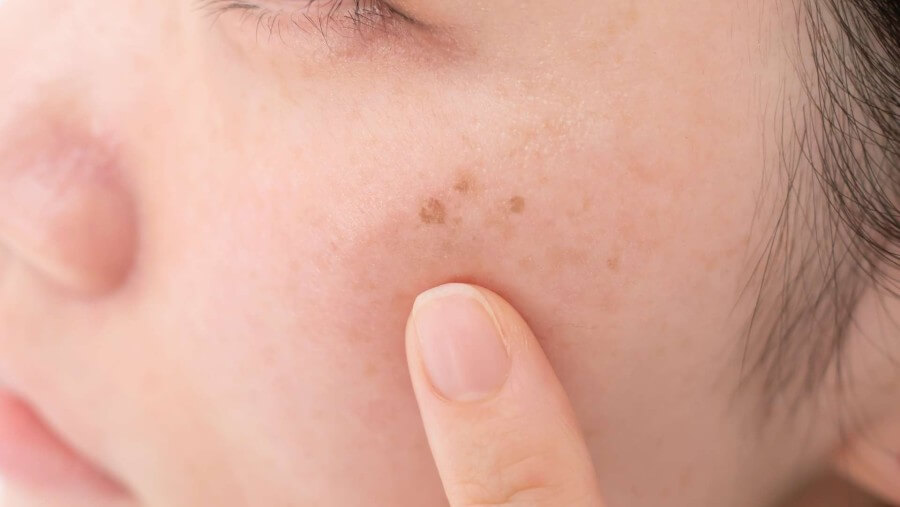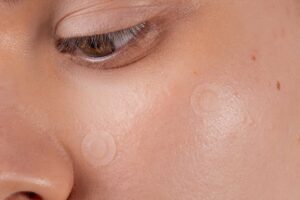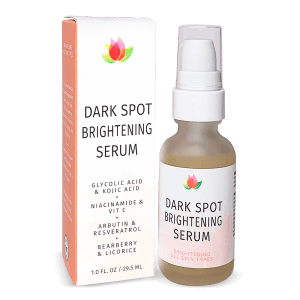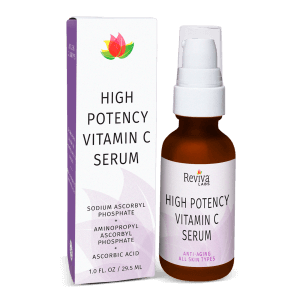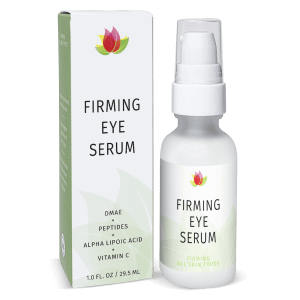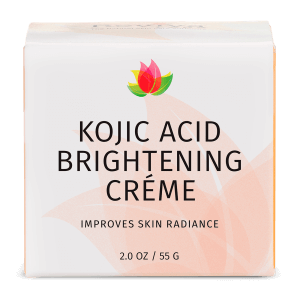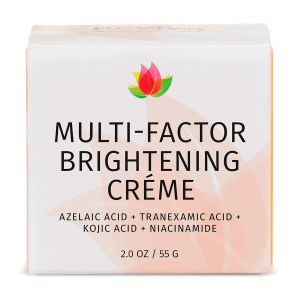Reviva Labs, Skin Care, Webinars
Out damn spots, out! – Talking Skincare, March 2023, by Reviva Labs
Webinar by Reviva Labs recorded March 30, 2023 - Discover the trigger of hyperpigmentation and the different causes of skin discoloration. We’ll discuss dark spots, melasma, hyperpigmentation, etc. and how explore different options for preventing, correcting, and enhancing skin’s radiance. In this session of Talking Skincare, discover how to brighten and rejuvenate your complexion.

Hello, I’m Bill from Reviva Labs, your Talking Skincare host for… Out damn spots, out!
Hyperpigmentation, uneven skin tone, dark spots – they’re all examples of melanin over production. There are many triggers such as the sun, hormones, and skin injuries like cuts, burns, or acne and even medications and diseases.
Melanocytes are the cells that produce melanin. When acting normally, like during a day at the beach, these cells deliver a tan. But if they go haywire they produce too much melanin. That can mean anything from freckles to dark patches or age spots.
Hormonal imbalances can also trigger issues. Melasma, also known as mothers mask, is common during or after pregnancy. Other hormone fluctuations can also affect the skin.
The truth is, any skin stress can trigger skin darkening. Post inflammatory hyperpigmentation – PIH – is commonly caused by acne or similar skin damage. People with darker skin tones are more prone to PIH and hyperpigmentation because they already have higher levels of melanin – so even a minor skin trauma can trigger an overproduction.
The first step in treating hyperpigmentation is prevention. Protect your skin from the sun. Use a broad-spectrum sunscreen with an SPF of 30 or higher and wear protective clothing when you’re outside.
Topical skincare can also help improve hyperpigmentation. Look for products containing one or more of the following: Vitamin C, Kojic Acid, Niacinamide, Arbutin, Resveratrol, Bearberry, and Licorice Root. All these ingredients have been shown to brighten the skin and reduce the appearance of dark spots.
Retinol is another effective ingredient for correcting hyperpigmentation. As is Bakuchiol, it’s newer counterpart. Each helps increase cell turnover and improves the overall texture and tone of your skin.
Exfoliation also helps to improve skin tone and the effectiveness of brightening ingredients. Glycolic Acid, Salicylic Acid, Azelaic Acid, Tranexamic Acid, and Lactic Acid are some of the most common.
For more severe cases of hyperpigmentation, your dermatologist might prescribe hydroquinone or suggest chemical peels or laser therapy. These treatments can help remove the top layer of skin and promote the growth of new, healthy skin cells.
The key to correcting hyperpigmentation is to identify the underlying cause. Then with the right skincare routine, you can achieve the clear, even skin tone you’ve always wanted.
Thank you for tuning in to Talking Skincare with Reviva Labs. If you want to learn more, join us at 3pm Eastern Time via Instagram LIVE.
And remember, you can always schedule a free 15-minute virtual skincare consultation simply be visiting our website revivalabs.com. And sign up for future Talking Skincare webinars.
Until next month, keep your skin radiant and protected!



